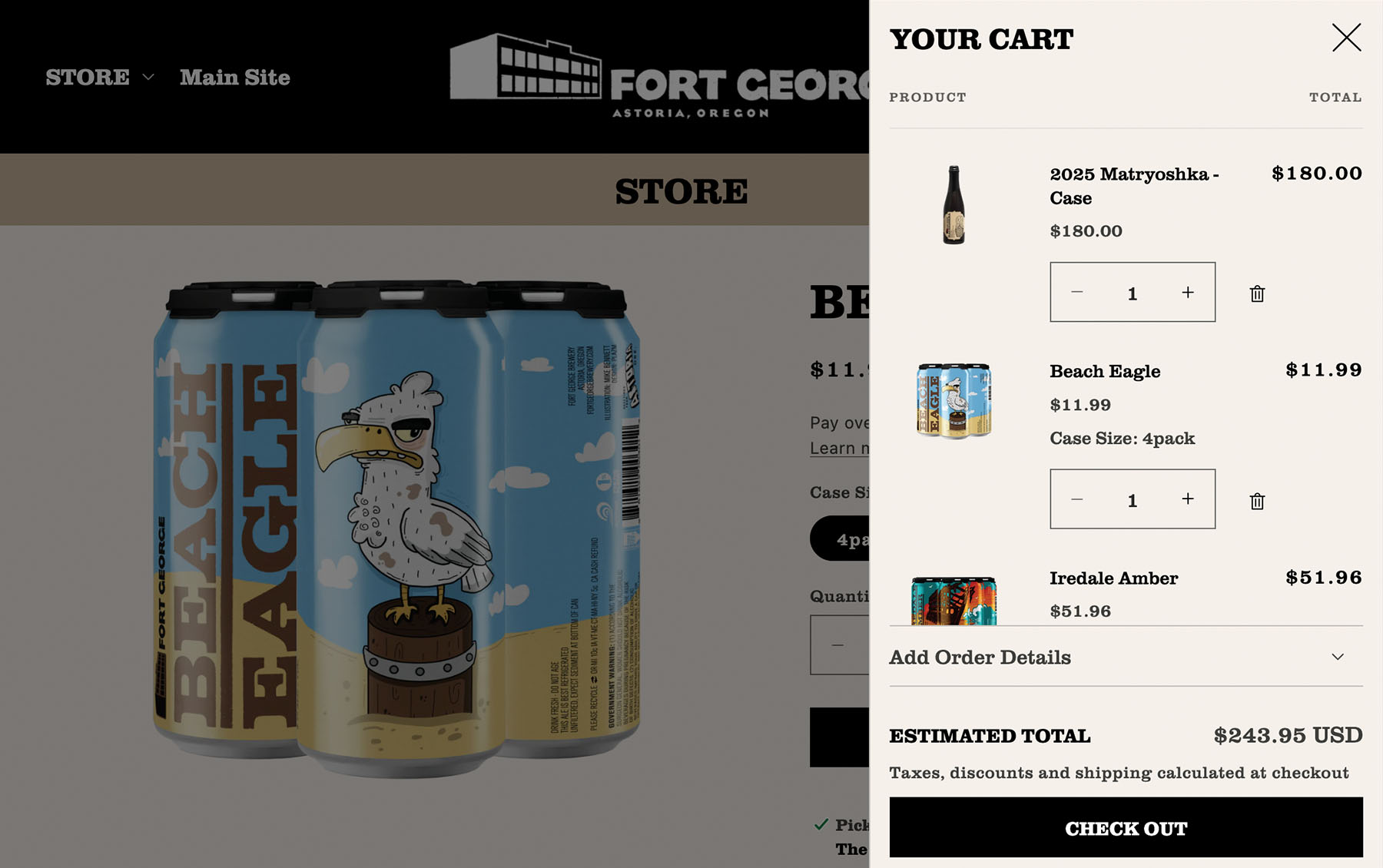Shopify
The ubiquitous and powerful online store platform powering mom-and-pop shops, multinational retail powerhouses and everything in between
Shopify has somehow managed to make itself the go-to for both small, modest online shops as well as for large, complex storefronts for the world’s best known brands. Turns out there are some good reasons for its durable and wide ranging appeal. Through partnerships with third-party app developers, Shopify can do just about anything you can imagine. Its GraphQL APIs, geared toward headless website and third-party app development, are amazing and its Liquid templating platform is top notch. The folks in charge of making sure that both value-driven business owners and seasoned developers are continually delighted by the platform are totally nailing it.



Harmonic Northwest has worked with Shopify in a number of different ways. We build on the Liquid platform, in headless form utilizing GraphQL and Next.js and by injecting their shop button and cart into non-Shopify content management systems. We’ve built gated club memberships, sites with wholesale and retail options, stores with email-for-pricing options, stores that integrate with POS systems (i.e. Square) and shipping management (i.e. ShipStation), and more. We’ve built from scratch, redesigned and reconfigured. Whatever we’ve been tasked to do in Shopify, Shopify has done well.


Effortless Checkout
The simplicity, sophistication and reliability of Shopify’s checkout is legendary. They have a great checkout process for customers that allows for all of the bells and whistles including hundreds of payment options, durable user accounts, build-in fraud protection, real time shipping rates, fulfillment tools, full PCI compliance and more.
Uncanny customizability
Shopify gives developers a host of tools to craft sites that meet business goals and provide customized user experiences. This can be done through custom coding using their proprietary Liquid templating system, headless apps that pull data from a GraphQL API and standalone widgets you can embed on HTML pages. Complex customizations are more often handled by a rich environment of enterprise-grade third-party apps.
In addition to serving the purpose as a storefront, Shopify is also has a pretty great general content management system that gives developers the ability to create infinite page templates, specialized content blocks and custom admin data fields. Additionally, the Shopify CLI makes it a breeze to work on Liquid templating hybrid-style on both your local machine and via their online theme code editor.
A thriving app ecosystem
There are currently several thousand apps in the Shopify App store that serve all kinds of different functions. The quality and range of functionality of many of these apps is quite good, as is the customer service. Often times you’ll find yourself with a selection of several highly-rated apps to choose from to fulfill a business need, each with its own nuanced approach and price point. There are apps for marketing, reviews, loyalty, subscriptions, online forms and more.
Painless tax handling
Out of the box, Shopify can handle basic tax collection from U.S. states and various regions around the world. You won’t need to worry about weather you need to collect a tax from an unfamiliar jurisdiction on the other site of the county—Shopify takes care of that for you, and provides you with easy-to-use reports when it comes time to render those taxes.
Managed hosting
Shopify is a fully managed and hosted SaaS solution. Their 99.99% uptime is tough to beat and their enterprise-grade security practices stop fraud and abuse. TLS/SSL certificates are included, as are regular site backups.